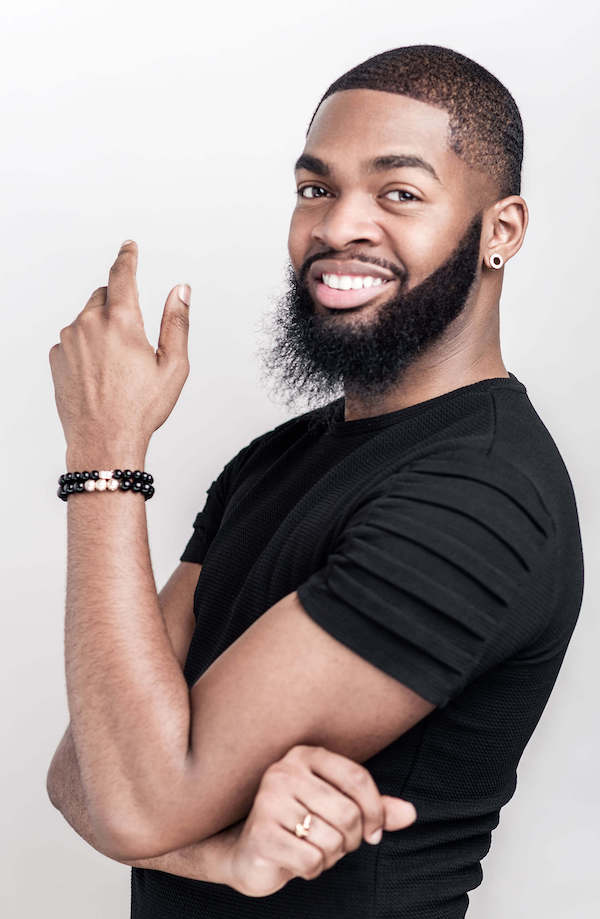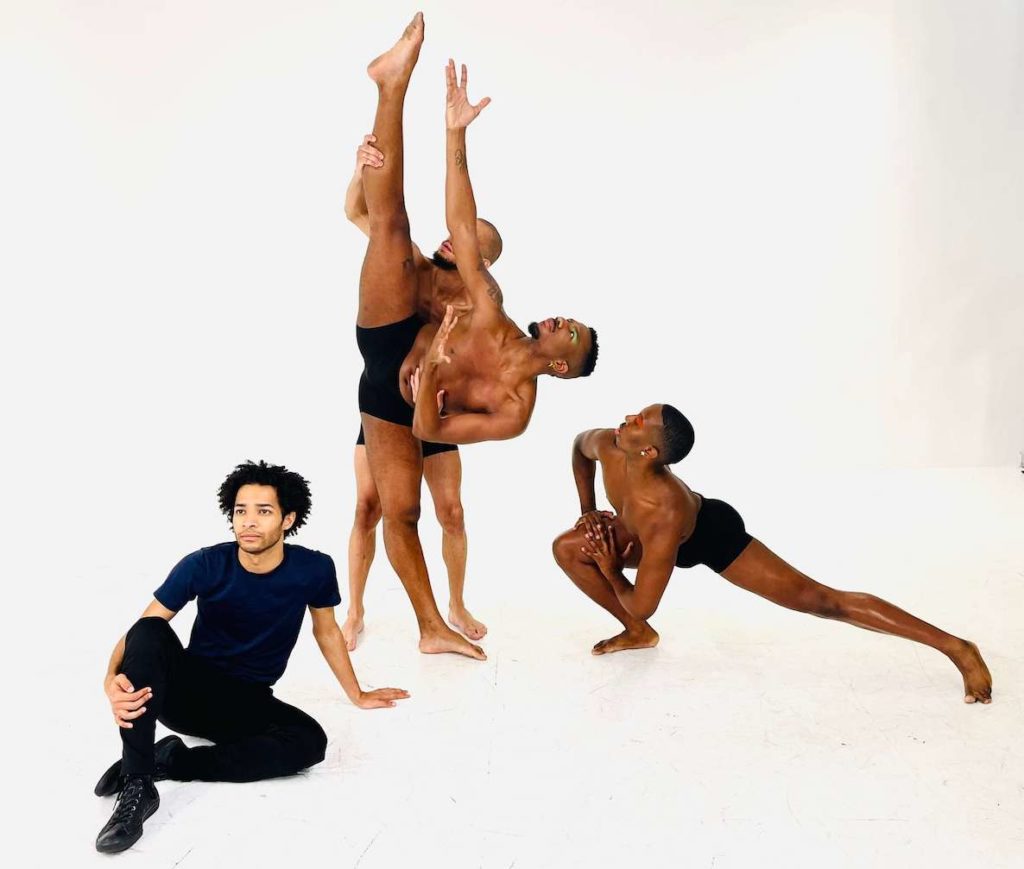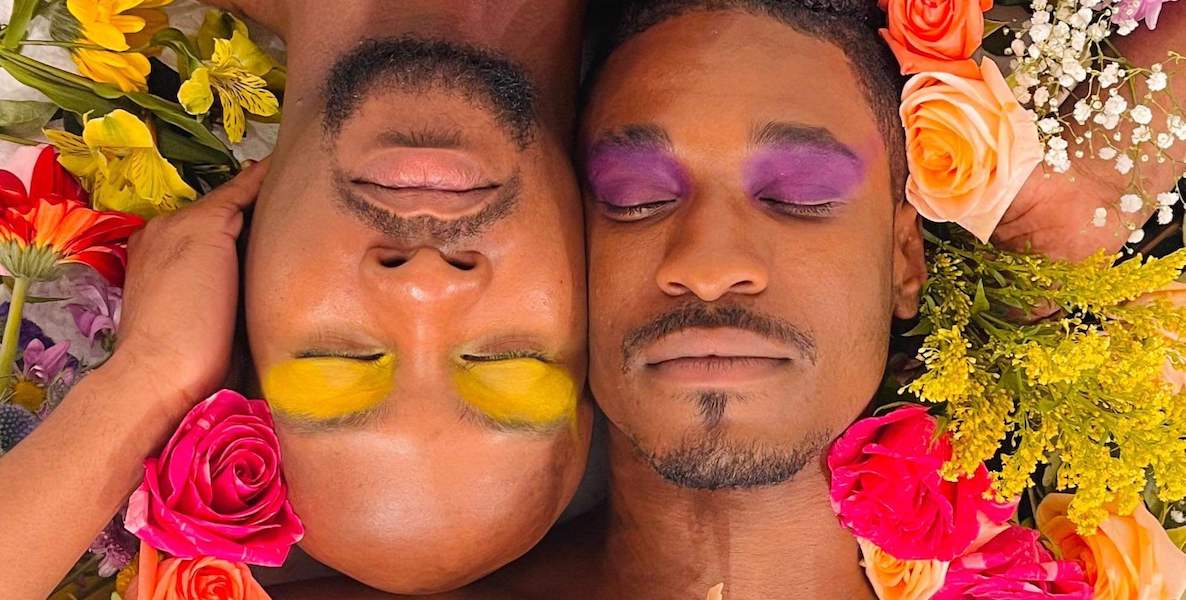Kemar Jewel knows what it’s like to be totally alone, completely alienated.

Just before his 16th birthday, he was kicked out of his West Philly home when his mom discovered he was gay. He spent the next two years without a permanent home, couch-surfing, performing sex work, riding SEPTA for a warm place to stay.
Still, while his mother’s values are what led to Jewel’s expulsion from home, he credits so many of her other values with giving him the survival skills he ultimately needed.
“I definitely got my drive from my mother and grandmother,” he says. “They both immigrated from Jamaica, and it’s no secret that most immigrants and children of immigrants have that fire to succeed and do well.”
Now nearly 30, Jewel has been channelling his experiences of being a young, gay Black man in Philly into his work as the choreographer and director behind digital dance pieces that have gone viral, with more than 14 million hits worldwide.
He cringes at the corniness of a phrase a friend uses to describe his work—“artsivism,” the spirit of using art as activism—but his work lands decidedly at that intersection. “It really does mean a lot to me when I can take my pain, and other people’s pain and experiences, and turn it into something beautiful,” Jewel says. “Because I’ve realized that my art can be more than just fun. It can be entertainment but also education. It can represent communities in different ways.”
He’s committed to showing the multidimensionality of the Black queer community. “I just really want people to know that Black queer people, Black trans people, are three-dimenstional people,” he says. “I really enjoy creating art that shows Black queer people in these really multifaceted ways, so that you can know that they’re not a monolith.”
One of his most popular videos last year focused on Black queer and trans people vogueing—that style of dance that incorporates model-like posing—as a form of both protest and joy in this political climate. “I was so touched by so many messages I was getting from people around the world saying they saw themselves in the video, that they could relate to it, that it was educational and engaging,” he says.
MORE LGBTQ NEWS IN PHILADELPHIA
Jewel’s latest piece is called Soft: A Love Letter To Black Queer Men, and it, too, was created in the spirit of letting people know they’re not alone. “It’s about Black queer men who are using the language of contemporary dance to heal from homophobia, connect as a community, and also just serve as a reminder to be soft with yourself and others,” he says. “Among Black men, there’s a stigma that you have to be masculine and hard, and oftentimes we chastise men, especially Black men, who show emotions and cry or are openly hurt.”
He says the piece was inspired by his experience of being kicked out, feeling useless, and then finding a community who rallied to uplift him. All but two of the dancers in the piece are from Philly, and he regularly taps Philadelphians for his work, people he knows from University of the Arts and Philadanco, the PA Ballet and Temple. “It’s definitely very, very, very Phily all up in through there,” he says with pride. “Philly is always gonna be my home. I’ve toured Europe, I’ve worked in DC and NY and down South. I’ve been so many places, but Philly will always be my favorite place.”

Having done sex work himself, Jewel is currently working on a piece that’s a modern take on “Hey, Big Spender,” looking at how sex work is work. He’s hoping to cast all or mostly Black trans women, because he feels that their narrative is often taken out of the conversation about sex work; becauase he’s not a Black trans woman, he’s currnetly looking for a co-director and other production folks who are, to make sure that the piece is authentic. “Doing sex work was a very hard thing for me, and I know about the actual story,” he says. “But if I want to talk about a very specific community, I want to make sure they’re actually involved with it.”
Even before he was on his own, Jewel had discovered an early love of, and escape in, the arts. “Art was my happy place,” he says. As a pre-teen he’d write 50-page short stories, and he always relished the dance and music and festivals that were a part of his Jamaican heritage. “For me, art was a place where I felt safe.”
He went on to graduate from Penn Wood High School in Lansdowne—no matter what befell him, he’d had the value of education instilled in him by his grandmother, who raised him in Yeadon until he was 12—then graduated from Temple with a degree in theater.
RELATED EVENT: Join us for a discussion about the fight for same-sex marriage America on Tuesday, August 3
Along the way, he embraced Philly’s arts scene and its gay culture. “Growing up, I was always around the Gayborhood and Avenue of the Arts. I met so many singers and designers and artists just from being downtown and being around other gay folks,” he says. And he credits so many of Philly’s free resources in the gay community with getting him through: The Attic Youth Center; Mazzoni Center; William Way LGBT Community Center; Colours; GALAEI; and Philadelphia FIGHT.
While he supplements the cost of his work through GoFundMe, the pieces are otherwise self-funded, with each one costing about $3,500 to $5,000. He’s taken out loans to pay for a video, he’s put charges on his credit cards—all in the name of creative control. “When you control the money, you control everything,” he says.
And frugality, he says, is yet another lesson he learned from his mother and late grandmother. “My best friend and I joke that ‘if it’s free, it’s for me.’” That attitude is what led him to seek out free local mental health support that has changed his life and allowed him to pursue his art in earnest.
“I cannot imagine being in this world without my best friend and my therapist,” he says. “If you’re reading this, please do yourself a favor and look into mental health services.” He wants young people who might be struggling like he did to know that the way your life is now is not going to be your life forever; that being mistreated is not your fault; and to find just one person who you can really confide in and be 100-percent honest with.
And along the way—along whatever journey you may be on—you can find a sense of hope, of belonging and community, in Jewel’s powerful work.




